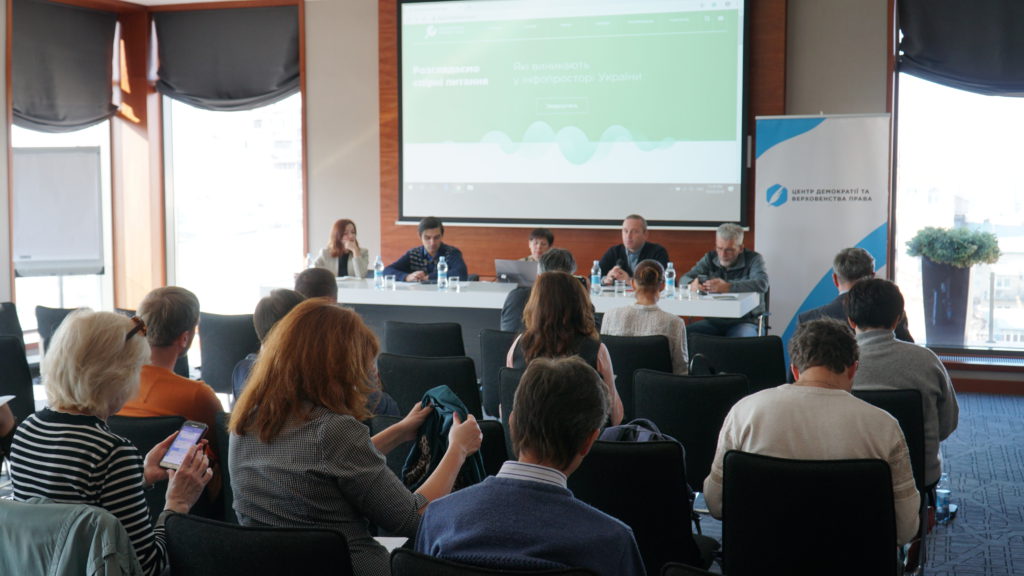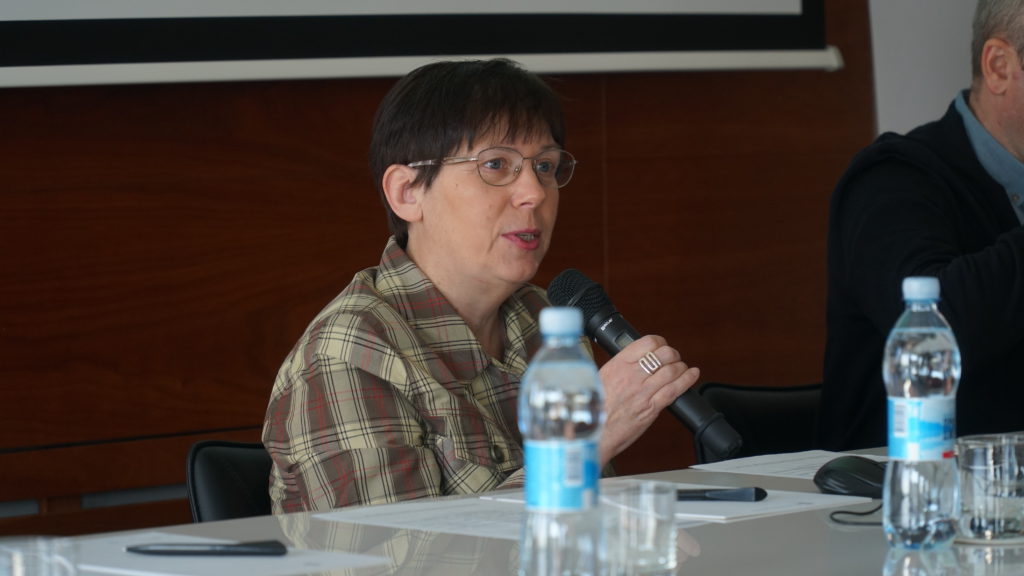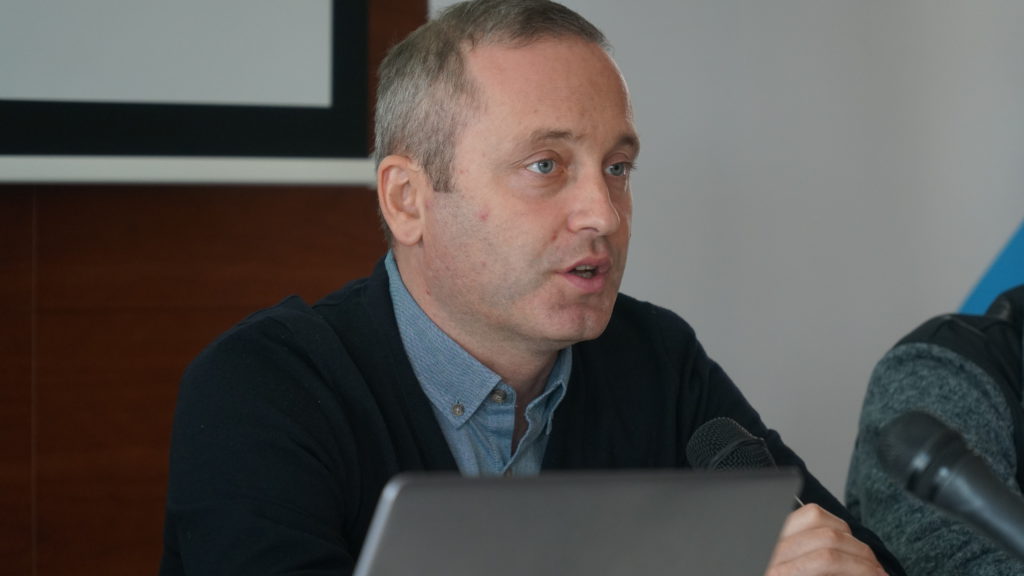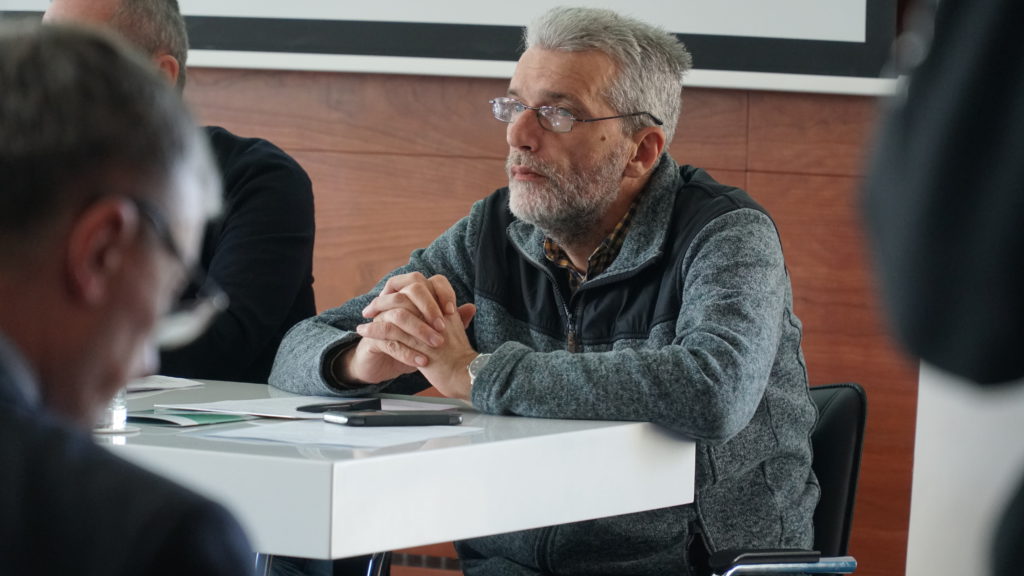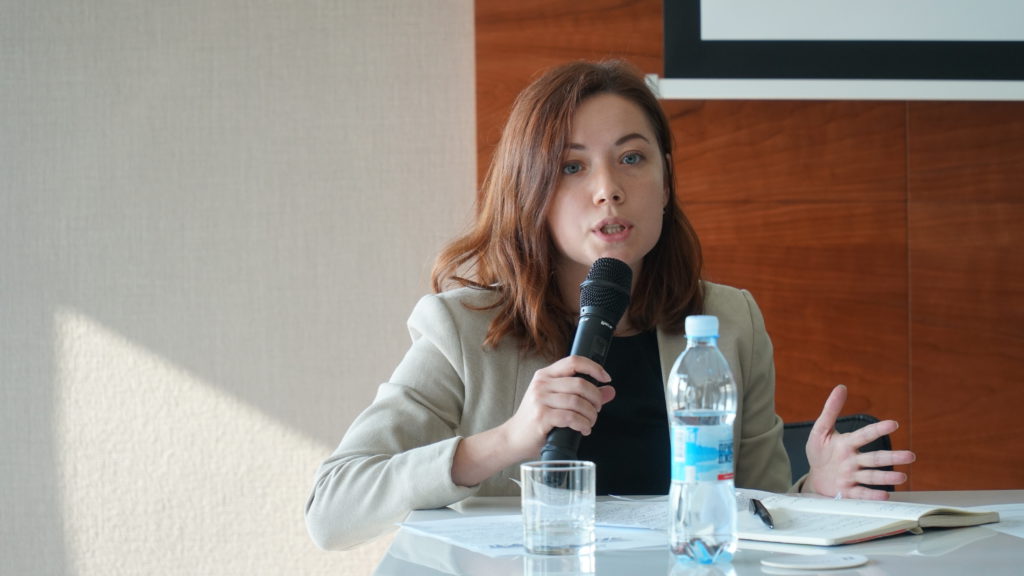Ukraine enters into election year during which Ukrainians will elect President and Verkhovna Rada. Media will play leading role in these campaigns. After all, media is the major source of political information for our citizens. Hence, the result of elections will directly depend on quality of media materials and observance of journalistic standards.
During roundtable discussion “How to provide qualitative informing of media audience during elections” arranged by Independent Media Council there were such issues discussed as how to provide a qualitative information for electors, how media could withstand to spread of misinformation during elections as well as legal aspects of journalists` work within the circumstances of mass campaign of agitation. Participants of the roundtable discussion were IMC members, media experts, journalists and attorneys.
Threat for Public Broadcasting and hybrid war: what challenges stands against media
One of the newest challenges for Ukrainian media industry is a blocking of Public broadcasting reform as the experts note. NPBU already performed a range of steps however, successful finishing of reform is blocked due to lack of funding: in that way this year VRU has cut the budget of “Suspilne” [Public broadcasing in Ukrainian] by 50%. At this “Suspilne” is extremely important during elections since does not depend from the state or private owners hence could provide impartial and balanced information. In addition, NPBU should became a site for analytical materials and political debates. However, cost of one episode of such program is 7-10 thousand US dollars, hence their launch is undecided.
«Here [under pressure to “Suspilne”] the interests of both parliamentarians which are not given 20 minutes for agitation and President branch of government which does not like independent media and journalistic investigations appearing there has merged. Hence, one of the tasks of Independent Media Council is to assist the next budget of NPBU will not be cut and no issue will be raised concerning broadcasting termination», – has noted Nataliia Ligachova, the head of Independent Media council, NGO “Detector media”.
The election process itself will become a challenge for Ukrainian media due to state of war, in particular, information war. While the participants and media itself expresses accusations against governmental authorities, similar messages are also used and promoted by Russian communication sources, As Nataliia Ligachova said, media should draw a borderline between right for criticism and blaming.
«Situation imposes liability on us: to provide information quite literally without mixing own emotions and facts. There is a reason to criticize authority for corruption, in particular, but criticism has to be positive. However this in any case should not escalate into self-administered censorship», expert emphasized.
Self-regulation and professional integrity: how media industry will resist to native advertising
It is already a tradition if pre-election problem is the paid political advertising. Oficially campaign is not yet began but amount of commisioned publication in Ukrainian media increases. Correspondingly, media experts are planning to resist it.
According to the Nataliia Ligachova, for now media companies prepare memorandum about ethical covering of elections. This agreement will specify the «rules of game» for media oriented on observance of a standards and impartiality.
«Let me to remind you that in 2012 such agreement was already in force. We will convince top-managers of media and journalists to attract to it. «Journalistic revolution» in 2004 has began just from the bottom so we need a readiness of journalists to withstand against «political put-ups», she emphasized. Also, media expert society is ready to support journalists which will campaign against intervention of owners into editorial policy and against native advertising.
Pavlo Moiseyev, the law director of the «Internews Ukraine» has supported idea of self-regulation indicating that journalistic society should publically specify ethical principles of work during elections.
«In future we will be able to refer to media: if you support these positions then announce the principles in your resources. And if media will publically support the agreement while later they would not fulfill liabilities then other journalists or active citizens could claim about this. By the way, it is necessary to determine at once how to react on media which will abuse these standards», he said.
Instead Andriy Kulikov, the head of Commission on Journalism Ethics, offered to perform a monitoring of elections covering. «It is probable that by the means of interested media we could introduce «elections diary» where we will register both most severe violations and qualitative materials. After all, honest journalists should be encouraged» he told.
Participants of roundtable discussion have also noted importance of press-card for journalists. Just during elections fake journalists appearing become a problem who hide behind licenses however act as seducers. Hence, media society should have opportunity to issue a document which will distinguish real journalists.
Legal issues and ways of resolving
Although self-regulation is important for media community the solution of electoral issues is impossible without action of state authorities. Given that, they could punish dishonest media for native advertising or hate mongering while public sanctions are limited by public judgment.
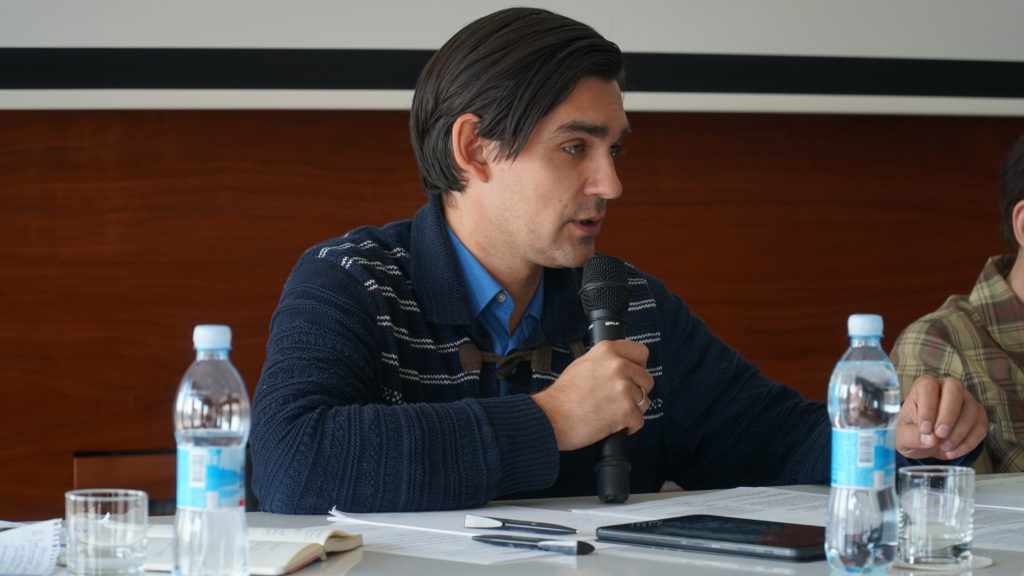 However, as Igor Rozkladay, the lawyer of CEDEM and the secretary of Independent Media Council, said, the National Council on television and broadcasting acts inadequatly during elections.
However, as Igor Rozkladay, the lawyer of CEDEM and the secretary of Independent Media Council, said, the National Council on television and broadcasting acts inadequatly during elections.
«The problem is that the regulator acts in extremely passive way. National Council has to react at least in case of hate speech. When they declare that no one will be levied during elections, but later will issue a report, then a logical question arises: «so what?». Reports are good however, there are no actions behind its results. It has value only if becomes a grounding for conclusions or laws-in-draft which eliminate discovered issues», he pointed.
Lawyer also emphasized that Ukrainian legislation «doesn`t see» Internet and social networks which became comprehensive field for agitation and communication outreach. However for now we don`t have neither clear requirements nor legislative standards nor mechanism of interaction with social networks. «Internet-segment will grow so it’s necessary to think about self-regulation or co-regulation», Igor Rozkladai forecasted.
Later experts have noted that specifically rendering of media role during elections in Ukraine is wrong. Media are bind with liability to transfer information about politicians and from them to society. Meanwhile it is required in the right manner to help media to become an independent professional gambler. Therefore, speakers should analyze programs and activity of politicians, reveal tweaks and bring enlightenment among electors.
How to stop tampering: advices for journalists
For recent years electoral campaigns increasingly frequently distinguished by not just invited materials but comprehensive campaigns of misinformation. USA and France already faced with this problem and similar threat challenges against Ukraine. By the words of Vita Volodovska, the expert of Digital Security Lab, just media spread misinformation mostly, hence they should antagonize it:
«First of all, media should not spread misinformation and it means check not only facts but also sources: if you quote someone you should also check the credibility of said. Secondly, it is necessary to reject from provocative titles and leads. Indeed even if the material itself is balanced people often read only titles of news and make wrong conclusions. The same deals with posts and visualizations», she said.
Media expert emphasized that during elections media should be proactive. Journalists have to uncrown the misinformation even if it`s author is another publication. Like that, political claims consistency check will be an extremely required. Right-minded media should collaborate between each other in order to reveal and disprove tampering.
The project implemented with the assistance of the Media Development Fund of the USA Embassy in Ukraine. Opinions of participants of event are not obligatory coincide with official stand of the government of USA.
